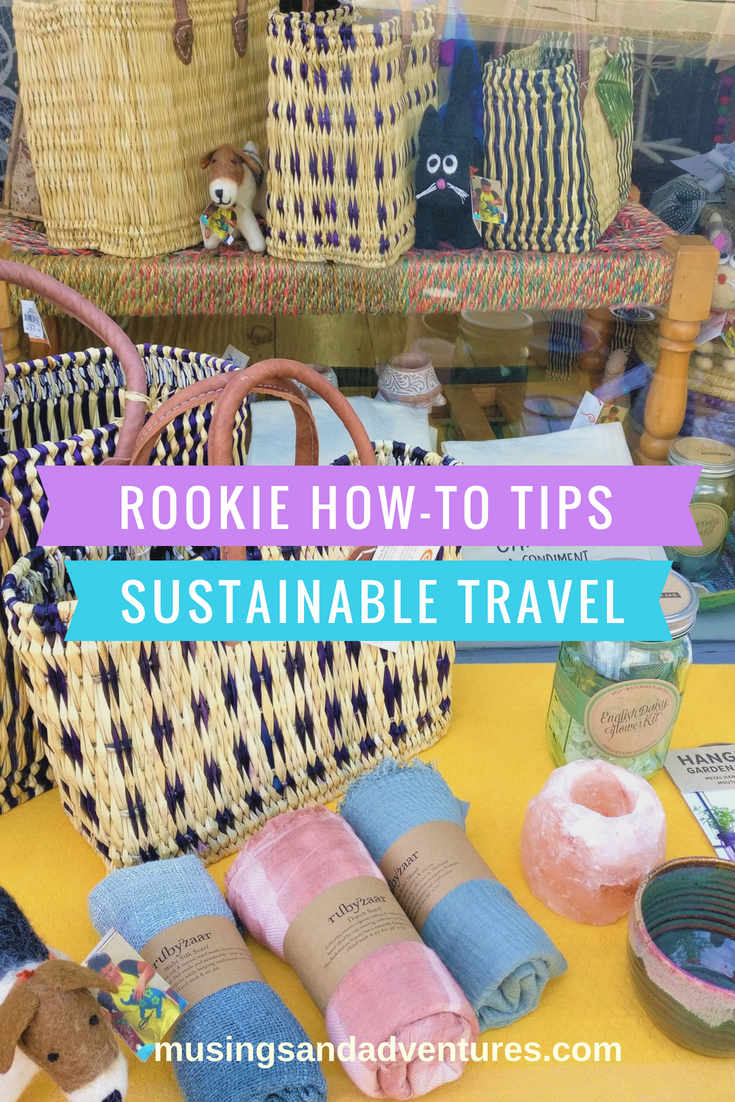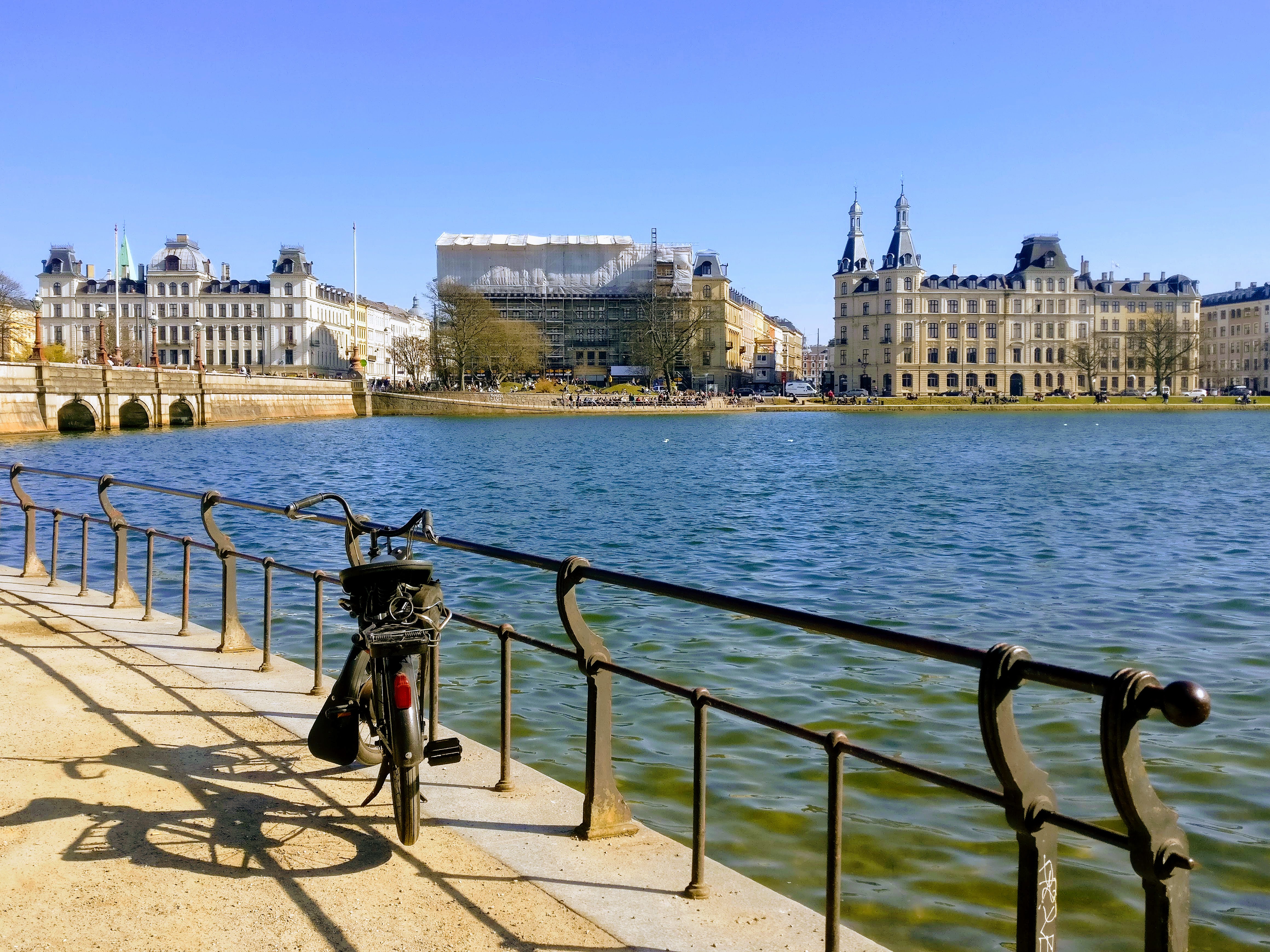Updated June 2019.
Sustainable travel is the current buzzword in the travel/tourism industry where travellers and the industry alike aim to reduce their environmental impact on the people, cultures and places they visit and experience.
Even though this phrase has been in our lexicon for a couple of years, earth-conscious citizens for decades have been practicing the concept of sustainable travel as part of sustainable development and eco-conscious travel.
Travel+tourism is not a traditional cut and dried industry on its own but a melange of many sectors that make it what it is today thus it is a very multi-disciplinary sector requiring various specialties.
Sustainability is now a part of every corporate sector and travel has not escaped it. We’ve all seen videos and read articles on oceanic plastic, the Air bnb epidemic in major cities, Venice and over-tourism etc, where these issues highlight sustainable processes to alleviate conditions.
Sustainability isn’t just about the physical environment; it also concerns the well-being of local populations, culture, heritage and economic markets to sustain their communities resulting in sustainable travel.
As a result, the industry is moving towards positively influencing and/or reforming these various sectors of its pie in response to a very vocal demographic: Millennials.
“Ah! Those pesky whipper-snappers! They’re killing everything from eating out to movie theatres. Entitled young uns.”
Yep. We’ve heard it all before and as an older millennial, it’s tiring.
Eating out costs dinero which we’re trying to save to pay off loans, buy homes, travel and just live and frankly, unless I’m being treated to a movie, why spend that amount when Netflix, Hulu and HBO exist?? I assure you that we’re not spending all our money on avocado toast.
Disclaimer: My academic background is in environmental science/studies with a career in energy efficiency and sustainability.
Related: How To Spend An Eco-Friendly & Sustainable Weekend In Amsterdam
Tips, Shtips…
1 Planes, trains or automobiles. Where feasible, travel via rail as it’s not only scenic and restful, but less polluting than automobile or air travel. Alas, Stateside, it is usually much cheaper to travel via air or even drive, than by rail, compared to Europe. I know that size and geography play a big role in this but also cost is the main factor that travellers take into consideration.
My manager in D.C. regularly flies into New York-New Jersey because a round trip is cheaper than train. I don’t believe him till I look up tickets and I shriek! I can pop into Cuba on those prices. People regularly do this: taking air travel between NYC-Newark-Philly-D.C. and Baltimore which are close by.
I remember my time in Copenhagen and how I am able to pop into Sweden via train. It is 40 mins away, so convenient and less polluting. For zero pollution, biking across the Oresund is very possible and there are die-hard cyclists that do this. That’s one of the many joys of living in Europe: accessible rail transport within and between countries.
Air travel contributes immensely to air pollution via carbon dioxide emissions with more emissions occurring during take-off and landing. Share on XFlygskam is a new Swedish word meaning “flight shaming”, to shame people into abandoning air planes for less polluting forms of travel.
I really don’t think shaming people into doing anything works but it is gaining acceptance and momentum in Sweden for sustainable travel. On the other hand, Sweden is not in the top ten of countries with high travel rates – China, U.S. & Germany are – so they can afford to indulge in flygskam whereas most Western countries cannot afford to.
I’ll be honest: I love travel and living in the U.S., I don’t see any other sustainable mode of travel between the North American continent and Europe, Africa or Asia, apart from air travel. The only way to alleviate flygskam is to fly as infrequently as possible & participate in carbon offset programs.
In 2008, Virgin Atlantic became the first airline to operate a commercial flight using a biofuel blend and now research is being conducted to develop the “world’s first truly low-carbon, commercially-affordable solution to traditional fossil jet fuel”.
Read more about Virgin and their research on here.
2 Direct vs Transit. If you can take a direct flight to your destination without transiting for a couple of hours, then do so. I know that we don’t generally have control over this unless we fly our own Cessna or lease a Learjet but we should endeavour to research airlines and their routes for a direct, as-the-crow-flies flight to our destination of choice.
3 Carbon Offsets. If all else fails per #2 above, you can offset the carbon emissions from your flight (or frankly any mode of fossil fuel transport) by contributing to carbon offset programs or donating to environmental and/or economic development in a LEDC*.
These contributions are done through specific airlines or Conservancy projects in individual countries. View the Points Guy’s post on the different types of airline carbon offset programs and the airlines that offer them.
It covers everything from national and international airlines’ carbon offset programs, mileage, carbon emissions calculators and comparison charts for the different offset programs. It’s very insightful & I have bookmarks for future travels.
4 What type of tourist or traveller are you? Ok. I don’t have a hang up about calling myself a traveller or tourist based on whether we prefer tourist traps or off-the-beaten path sights so I use these terms interchangeably on here.
Let's also remember that off-the-beaten path sights can quickly become tourist traps in a jiffy once they hit mainstream knowledge and so long as we venture away from our home base, we're foreigners in another region. Share on XWhether backpacker, budget, luxury or other traveller type, we adversely impact the people and cultures that we visit. As such, we should be mindful of economic leakage during sustainable travel, which is when money generated by tourism is lost to other countries’ economies.
Adventurous backpackers are the one traveller type that generate the least economic leakage as they tend to spend money with locals. Other traveller types tend to generate more economic leakage as they utilize services (chain resorts, foreign restaurants and foreign organized tours) in the ownership of non-natives, especially in LEDCs.
This is not to say that everyone be a backpacker but we should be mindful of where we spend coin and who we patronize when sojourning in emerging and developing economies.
For example, staying in casa particulars instead of large hotels in Cuba return money to the local economy as the hosts are local. Same with using local taxis and eating from local eateries just like we do on our Carefree in Cuba winter getaway.
There’s a new type of tourism called “pro-poor tourism” where the poor in LEDCs are able to participate effectively in the tourism industry to improve their economic development. This means actively creating links between the tourism sector and indigenous businesses and actively patronizing indigenous businesses as tourists.
I recently read a post by a fellow travel blogger visiting Darjeeling in India where foreign tour organizers are building accommodation for the throngs of tourists discovering the tea plantations and the beauty of the area.
As a result, local lads prefer to work for foreign operators than go to school and they’re slowly losing cultural knowledge and craft traditionally passed down through generations. This is how culture and heritage is eroded over time.
5 Buy Local.
I was bred and buttered in Nigeria and I always encourage first-timers to the country to patronize local restaurants, artisans and indigenous hotel owners so that tourism foreign exchange stays within the particular city economy.
If you’re unsure of what service is indigenous owned in a developing country, engage a local and they’ll gladly help.
Most local services and products sold are by women and patronizing them definitely helps in uplifting families and communities out of poverty and into self-sufficiency.
This helps push the ‘pro-poor tourism‘ narrative and stifles economic leakage from the country. Even in Western nations, if you can patronize marginalized groups, please do so.
For example, at Marche Bonsecours in Montreal, most of the products – winter wear, jewellery and shoes – are of First Nation origin and it’s a pleasant surprise. Buying their products contributes to the particular tribe and community and I am happy to do my small part here.
6 Respect Local Cultures & Environment. Nothing is more sustainable than the respect and preservation of local cultures and environment by tourists. If a local tells you not to do something, please don’t, as they know better what affects their communities and environment. This is sustainable travel at its core.
In Cayman Islands, snorkellers and divers are advised not to step on reefs or even touch them for fear of destruction. Some pay heed and some do not.
In addition, follow the rules when interacting with endangered species – if you’re allowed to. For example, people are advised not to ride manatees in Florida and are fined if caught but I still see pictures of drunken spring break kids doing such.
Social media videos are exposing popular elephant rides in Thailand as abusive to animals and as such, tourists do not patronize them. We see pictures and videos of elephants being chained and beaten by mahouts resulting in these creatures losing it and causing fatal accidents.
There are a number of elephant sanctuaries that focus on conservation and care while permitting tourists a bit of interaction with the animals in a non-invasive environment but do your due diligence.
A recent Nat Geo article exposes some sanctuaries as fake because they cater to both Western and Chinese tourists – Chinese tourists want interaction & most Westerners do not – so these sanctuaries accommodate both requirements.
Another pet peeve of mine is the mindless big game hunting in East and Southern Africa and we’ve all seen pictures of wealthy Americans and Europeans beside dead rare wildlife for fun and taxidermy.
Of recent, The Guardian reports that luxury safari companies in Tanzania are burning Maasai ancestral land, banishing them from their lands and blocking access to their watering holes just to create luxury tours and access to big game sightings and shootings. Read the problem here.
The Tanzanian government is complicit in this too as in the 21st century, no foreigner can just come take your land by force. This isn’t the Scramble for Africa era of the 1800s where people and resources were stolen from their land. That’s an academic thesis on its own.
I’m sure some of you have taken or are planning on taking these luxury tours without realizing the displacement that occurs to the Maasai but I hope you dispel such thoughts and instead go with local tour operators that understand the culture and environment.
Lastly, please be mindful of buying stolen artifacts as souvenirs. Some of these are from shrines and sold to foreigners who unknowingly buy them as ethnic art. I’m very wary of these as I do not touch African shrine figures and art. I know them when I see them and prefer not to have strange dreams.
I translate this caution to ethnic art that I want to buy abroad as I do not want to unwittingly buy a piece of a community’s stolen heritage, the same way authentic African pieces are stolen and illegally traded in Europe and Asia. If in doubt, always engage locals as they have the scoop on everything.
7 Hold the Litter, Please! Garbage pollution and tourism go hand in hand and LEDCs suffer from this as they lack strong institutions to address these issues.
Most of the garbage is plastic waste from single-use plastic products and packaging. As such, try to limit packaging and if possible, wrap fragile items within towels and clothes to cushion them. This tip also saves on over-packing.
With the influx of travellers to Bali, most of its beaches are inundated with garbage and Indonesian officials have declared an emergency.
This pollution is evident in a recent video in Bali showing a diver surrounded by garbage underwater. It is horrible.
Always clean up afterwards on a beach or camp grounds and if there’s no garbage receptacle in the area, take them with you to dispose of at your accommodation.
Take a bag like this sling rPETe reusable bag and a non-plastic reusable water bottle to eliminate buying plastic bags and single-use plastic bottled water. I do this on my trip to Copenhagen where they come in very handy. These items are portable and will enable you do your part in sustainable travel.
In addition, there are many alternatives to plastic utensils that are either recycled, natural or compostable such as this bamboo travel utensil set in its case made from natural bamboo and the case from recycled water bottles.
Of late, there are a number of sustainable activities combining travel, exercise & clean up gaining momentum in global cities and they are setting the pace and making impact.
Plogging. This is a Swedish portmanteau word from “pick up” + “jogging” as a way to clean up the environment while maintaining a healthy lifestyle. Those sustainable Swedes again are putting us to shame.
Strawkling. This is a new sustainable activity from Australia where snorkellers dive to collect plastic straws and discarded fishing nets while indulging in their beloved activity. Win-win!
Read More: Part 3: Zero Waste Challenge – Do It Yourself Plastic-Free
8 Endangered wildlife. Many places have illegal animal products and endangered wildlife knowingly sold to tourists. Animals like slow loris and pangolin have value because the slow loris is a cute nocturnal creature bought as a pet and pangolin scales are considered medicinal by the Chinese.
In fact, the pangolin is the most trafficked animal in the world and while it can be eaten, its scales are dried, roasted and crushed for ingestion.
Even if you have no intention of buying wildlife, they’re held captive on the streets of their native land and made to perform for tourists by handlers. No doubt, you seen & walk by monkeys performing for coins on your S/E Asian trips.
Granted, not many people know what animals are endangered and frankly I only found out about slow lorises four years ago, but it always helps to research and ask questions of locals so that you can contribute positively and practice sustainable travel as an eco-friendly lifestyle.

Slow Loris. A nocturnal creature, native to S/E Asia, that is heavily trafficked globally. Source: World Atlas via Google.

Pangolin. The most trafficked animal in the world native to Africa. Its scales are keratin and sought for medicinal purposes. Source: South China Morning Post via Google.
I’m aware that there is a direct overlap between some of these tips and empowering local people – for example, elephant and endangered wildlife handlers are locals that rely on tips to feed their families – and if we avoid them, families will suffer with no recourse to help from their national governments.
It’s hard to knowingly take food from another’s mouth but for mahouts, some take up work at reputable wildlife sanctuaries to learn about sustainable development and animal welfare.
Last Word
Do you incorporate some of these sustainable travel tips into your travel routine? What other sustainable travel tips do you know of and practice? Let us know in the comments.
If you’re lost on where to get plastic-free and natural products for home and all your sustainable travel, Earth Hero is a one-stop, affordable sustainable store carrying non-toxic, compostable and plastic-free products.
Browse them here–> Earth Hero and use code: MUSINGS2019 to get 10% off amazing sustainable purchases.
Do not forget to comment and share the love too. Thanks for reading! xoxo
Musings and Adventures is part of the Earth Hero EarthHero Influencers 5% and any purchase will give us a small commission with which to run our site. Thank you.
*Less economically developed countries





60 Comments
Traveler Nick
June 25, 2018 at 5:21 amSomething to think about is using one way flights. At times you can do a triangle type trip.
Fly into city A. Stay for a few days or more
Fly into your main city . Stay
Fly home
By doing this you can turn that indirect flight routing into an advantage. All the European budget airlines are basically one way . In addition you have TAP that allows you to have a long layover in Lisbon
With companies like Norwegian and even BA offering cheaper one way flights across the Atlantic this is becoming easier. Bigger issue is conflicting baggage allowances
Chandra
June 25, 2018 at 5:04 pmWow, I never thought about my footprint as a traveler. I honestly haven’t realized many of the points you talk about! Looks like my next trip, I will be more conscious about how I travel!
MELANIE EDJOURIAN
June 25, 2018 at 6:24 pmThis is a really informative post on sustainable travel. You have covered some important points that we should all consider. I don’t travel often and wheat home I am now trying to walk more and use the car less for environmental reasons.
LeeAnn @ Girl Bosses Rock
June 25, 2018 at 8:59 pmThese are all really great tips for travelers in foreign lands. I prefer traveling the “off the grid” places where the local run things. I find these more enjoyable and I learn so much more than doing a scripted tour by someone who really knows nothing about the land or the people. What may seem fun and entertaining or something “neat to have” could actually be illegal or involved in the mistreatment of animals like you mentioned. But the locals would know this.
Ana De- Jesus
June 25, 2018 at 9:28 pmWe need to learn to treat our planet with more care so I like the sound of being more sustainable when I travel. I am pleased to hear that Virgin Atlantic became the first airline to operate a commercial flight using a biofuel blend and now research is being conducted to develop the world’s first truly low-carbon, commercially-affordable solution to traditional fossil jet fuel, because as we all know fossil fuel uses up so many resources and is a non renewable source of fuel as well.
Jackie
June 25, 2018 at 10:37 pmI prefer train travel as well! I love taking the train when I’m in Europe, but we do need a little bit of help with our trains here in the US. Unfortunately, it’s always cheaper to drive anywhere, than taking some form of mass transit.
Komal
June 26, 2018 at 1:49 pmI am more of an off the beaten path kind of person myself. Traveling by train seems to be convenient in every country but America!
Sigrid Says
June 26, 2018 at 1:50 pmIn my city, I also encourage locals to patronize our local products and food, more than we do national or international franchises. In the same way, that is also what I do when we travel as a family — we seek out the local produce. That way, we can better appreciate what that place has to offer.
Rachel
June 26, 2018 at 1:55 pmA lovely guide to starting out on sustainable travel. My partner adn I try and train it wherever we can – luckily here in Europe we have pretty good railway networks. And also with a city, we tend to walk wherever we can rather than taking transport (its also cheaper for us so win win!) I love that you pointed out not littering, I see so many tourists do this, its frustrating I also wish more hotels introduced better recycling bins/programs.
Traviss Alexander
June 27, 2018 at 2:31 amVery interesting read, I have never considered all of the things mentioned! I do enjoy exploring and learning the culture of places I visit and buying local product and food to truly experience the destination. Some of the other things mentioned I will have to consider more of.
What Corinne Did
June 27, 2018 at 6:01 pmI always try to get direct flights. Quicker, cheaper and easier. I do not always manage but i also always try to make sure i don’t do anything that is culturally inappropriate
Akamatra
June 27, 2018 at 6:48 pmAs I try to be mindful and respectful of the environment these tips were very useful! I don’t fly that often but when I do I always prefer direct flights
David Allen Elliott
June 28, 2018 at 5:22 amIt’s great you can help out the local people of the places you visit. And keeping sustainable it a good way to be supportive of those people. Love the animal pictures by the way. That’s great.
Blair Villanueva
June 29, 2018 at 6:27 amBuying local products and never haggle from small vendors are my practices whenever I travel. And no more printing of plane tickets after I decided to just keep them on my email.
admin
June 29, 2018 at 6:31 amI strongly agree on the haggling part! When converted, I’m haggling over things less than $1 that mean food and drink for a child or children. Really puts things into perspective. Thanks Blair!
Maggie
June 29, 2018 at 4:14 pmThis is such a great post,Kemi! Lots of people would like to do more to be “sustainable travelers” but they aren’t sure how. Littering is my pet peeve. Whenever I go hiking, I always have a trash bag in my backpack for all of the trash I end up picking up along the way that other people have thrown on the ground. And I love buying local, particularly local artwork from artists. Artwork is so much more meaningful when it isn’t just some touristy souvenir that has been mass-produced.
admin
June 29, 2018 at 6:10 pmYes, Maggie. The littering is crazy and greatly irks me so. I also love local fabrics and arts & crafts as they’re very unique and contribute to the local community via sales. Thanks for reading, luv!
Tif
June 30, 2018 at 3:59 pmThis is wonderful and something we all should try and improve on! I wish railways were more common everywhere in the US and not just on certain coasts!
kim
June 30, 2018 at 4:54 pmI do quite a bit of traveling, so these tips were so helpful! I always get direct flights and have my tickets emailed to me.
Yukti
July 1, 2018 at 10:03 amLoved your tips on Sustainable travel. Thanks!
Hannah
July 1, 2018 at 7:23 pmThis is a good starting point for folks who are looking to travel more sustainably! Thanks for sharing!
Simerbir Singh
July 2, 2018 at 10:00 amThese tips are really helpful. Thanks for sharing.
Tomy
July 7, 2018 at 6:41 pmGreat tips. As travel becomes more and more accessible to more and more people, this is going to become more important. We should all take responsibility for our actions to ensure that we preserve the planet for future generations. Good on you 🙂
admin
July 7, 2018 at 6:49 pmThanks Tony! Yes. We should all take responsibility bit by bit. Little drops form a mighty ocean. Thanks for reading xx
Backpacking Series
July 7, 2018 at 9:18 pmThanks for sharing these points. Its a good reminder to be mindful when travelling and taking responsibility! Would be great if everyone adopts sustainable travel as their way! Love.. Backpacking Series
Sarah - Borders & Bucket Lists
July 8, 2018 at 4:06 amI hadn’t thought about my environmental impact as a traveller until very recently, and I feel like others are becoming much more aware of this as well. Thanks for the tips!
Annie
July 8, 2018 at 6:44 amYou’ve done a great job of diving into this topic! I had never given it much thought before – I’d love to be a more sustainable traveller.
admin
July 10, 2018 at 2:43 amThanks Annie. I hope we become more conscious of these and even much more whenever we travel and even in our home cities too.
Zoya
July 8, 2018 at 9:02 amWhat an informative post, Kemi. Being a sustainable traveler is becoming more and more important every day. I’m not much of a train person, although I know I should be more green in my transport choices. However, I fully agree with #6-8 and always try to actively be aware of them on my travels,
admin
July 10, 2018 at 2:43 amI love trains!! Scenic views, clean, fast and you can relax till your destination. A little bit helps for us to be more aware. Thanks for reading x.
anshul
July 8, 2018 at 10:01 amIr is so important to make sure that we are traveling sustainably and reducing our plastic consumption. I have spent days and weeks to reduce the plastic trash from mountains but the problem doesn’t find a solution. Hope more people write posts like these.
admin
July 10, 2018 at 2:41 amI read your post on that, Anshul. Very commendable of you. I mean, what does it take to take your trash with you from mountaintops and beaches? More awareness and orientation needs to be put out but also more #plasticfree products.
Eric Gamble
July 8, 2018 at 8:13 pmSo I am far from one of those hippy dippy save Mother Gaia Earth we all need to hug a tree type person! However, I love this guide to sustainable Travel cause if anything it showcases something that is really missing, Consideration! I mean how hard is it to just hold on to your trash until you find a can or opt for no plastic bag when you have a backpack? Just leave the place the same if not better than you found it!
Also, I love that promote buying local. It is by far my #1 principal to follow whether its food or “souvenirs”. I would rather spend my dollar helping a great local cook or artist that some massive conglomerate that doesnt care who I am or if I am even enjoying their product.
Just simple things make a difference…Be Kind, Be Aware, Be Considerate
admin
July 10, 2018 at 2:40 amExactly, Eric! Seeing trash just irks me! That YT video of the trash in Bali waters was so,so,so saddening!We really need to step it up on #plasticfree and bio-degradable products because it is an epidemic right now. Thanks for reading! x
daniele
July 8, 2018 at 9:29 pmThis is a really interestin post on sustainable travel. All the points you touched are important and it’s something we all should know.
Michelle
July 9, 2018 at 3:32 amThese are such great and useful tips! We do unfortunately travel by air and car a lot since we live in the US, but we try to use public transit more when we’re in Europe. I wish we had more trains in the US!
admin
July 10, 2018 at 2:37 amMe too! I used more trains when I lived in Europe. Sigh. The North-East is somewhat train accessible compared to other U.S. regions, still…
Purvi Kamaliya
July 9, 2018 at 6:32 amThese suggestions are really useful. We need to become more responsible for sustainable tourism and such posts really guide the people in the right direction. I always prefer to buy locally made stuff and also try to carry all my trash with me till I find a right place to dispose it off.
admin
July 10, 2018 at 2:36 amMe too, Purvi! I never buy clothes from Western stores abroad even if they might be cheaper. I always buy local clothes and goods to contribute and also because I love ethnic arts & crafts from all over.
Saurav Purkayastha
July 9, 2018 at 8:16 amVery thought post indeed, I really like what you are doing to raise awareness. I travel a lot, but have never thought about this issue so deeply, thanks for opening my eyes.
admin
July 10, 2018 at 2:35 amThanks Saurav. It’s never too late for us to really put thought into sustainable travel. After all, those places are people’s homes too and we want ours to be treated rght as well. Thanks for reading x.
Alan @ MorePassportStamps.com
July 9, 2018 at 4:43 pmSome great tips, I have taken the train across the Oresund but did not know you could bike it, wow!
admin
July 10, 2018 at 2:33 amYup! Folks do bike it to and fro. Over 55% of Copenhagen citizens bike. I was more worried of being tripped by a bike coming from the opposite direction lol.
a stroll around the world
July 10, 2018 at 1:52 pmThank you for this beautiful post. I always try to be eco-friendly in every aspect of my life, traveling included. Thanks also for the safari recommendations. I am looking for a safari (hubby’s wishes!) and I will use your advice when booking one.
admin
July 10, 2018 at 10:22 pmPlease, so book a local safari tour that doesn’t displace and kill locals and take their lands forcibly. Thank you.
Alex Trembath
July 11, 2018 at 7:44 amReally excellent and thoughtful tips on sustainable travel, which is a growing topic and rightly so. It’s hard to keep our footprint down as travellers but getting all of these little things right can make such a difference.
Jackie
July 27, 2018 at 10:58 pmWhat a handy post! There are so many things on this list that I wouldn’t consider but now I will definitely be more mindful of where I stay and how I travel to get there.
– Jackie (Organised Mum Life)
Hannah
August 24, 2018 at 3:21 pmLoved this post thank you! It’s so important to think about our impact when we travel.
25 Top Tips For Eco-Friendly And Sustainable Travel
August 27, 2018 at 5:44 pm[…] Hold your litter We’re all aware of the massive plastic pollution affecting once pristine beaches, islands and the marine ecosystem and we’ve seen videos of these on social media. These plastics are not biodegradable but do degrade via sunlight and water into micro-plastics that end up in marine life and on our plates. To do our small part in combatting plastic waste, my tip is to take the following items on travels: a reusable cloth or jute bag, non-plastic water bottle, bamboo travel utensils and bamboo or glass straws. They’re all lightweight and weigh no more than hygiene products or make-up. The straws can go in the water bottle & the bag lays flat or rolled. Musings and Adventures – Rookie Tips On Sustainable Travel […]
25 Top Tips For Eco-Friendly And Sustainable Travel - Digital Travel Guru | 360 Travel Experience
September 29, 2018 at 10:25 pm[…] Hold your litter We’re all aware of the massive plastic pollution affecting once pristine beaches, islands and the marine ecosystem and we’ve seen videos of these on social media. These plastics are not biodegradable but do degrade via sunlight and water into micro-plastics that end up in marine life and on our plates. To do our small part in combatting plastic waste, my tip is to take the following items on travels: a reusable cloth or jute bag, non-plastic water bottle, bamboo travel utensils and bamboo or glass straws. They’re all lightweight and weigh no more than hygiene products or make-up. The straws can go in the water bottle & the bag lays flat or rolled. Musings and Adventures – Rookie Tips On Sustainable Travel […]
Ritu Sharma
April 13, 2019 at 9:54 amAwesome tips on Sustainable travel. Just loved it.
Gill Trotman
April 13, 2019 at 9:23 pmExcellent tips on traveling. I especially like how you talk about respecting local cultures and environments. As you said, the locals know more about the community than a tourist and even something as simple as feeding the wildlife could be dangerous or consequential. Great post. Thank you for sharing!
admin
April 14, 2019 at 3:13 pmThanks Gill!
aisasami
April 15, 2019 at 4:47 pmI try to take the slowest route. Not because it is cheaper but you find little things on the way that you never knew before.
Clarice
April 15, 2019 at 5:41 pmI love the idea of sustainable travel. With years of exploitation of our natural resources, it’s about time we start being intentional even in our traveling experience.
Thank you for sharing these tips. They’re brilliant ideas.
admin
April 16, 2019 at 1:03 am“Being intentional”. An apt term.
elizabeth o
April 15, 2019 at 8:26 pmYes, we can all reduce our carbon footprint by the choices we make as travelers for sure. Recently, I saw a family with out of state plates driving around a city near me. The hubby tossed an empty bottle out the window, and I was almost tempted to chase him down. We need to be conscientious in so many ways as travelers.
admin
April 16, 2019 at 1:03 amI’ve seen YT and Twitter videos of people chasing down trash tossers and throwing their trash back in their car.
Rose Ann Sales
April 16, 2019 at 9:44 amWhat a great content. I don’t travel much but I totally agree with you. Even if I stay at home often, whenever I went outdoors I’m always aware of my responsibilities as a good citizen or probably human. 😂
admin
April 18, 2019 at 1:04 amSo true! You don’t have to travel to be eco-friendly. It’s even best done at home.